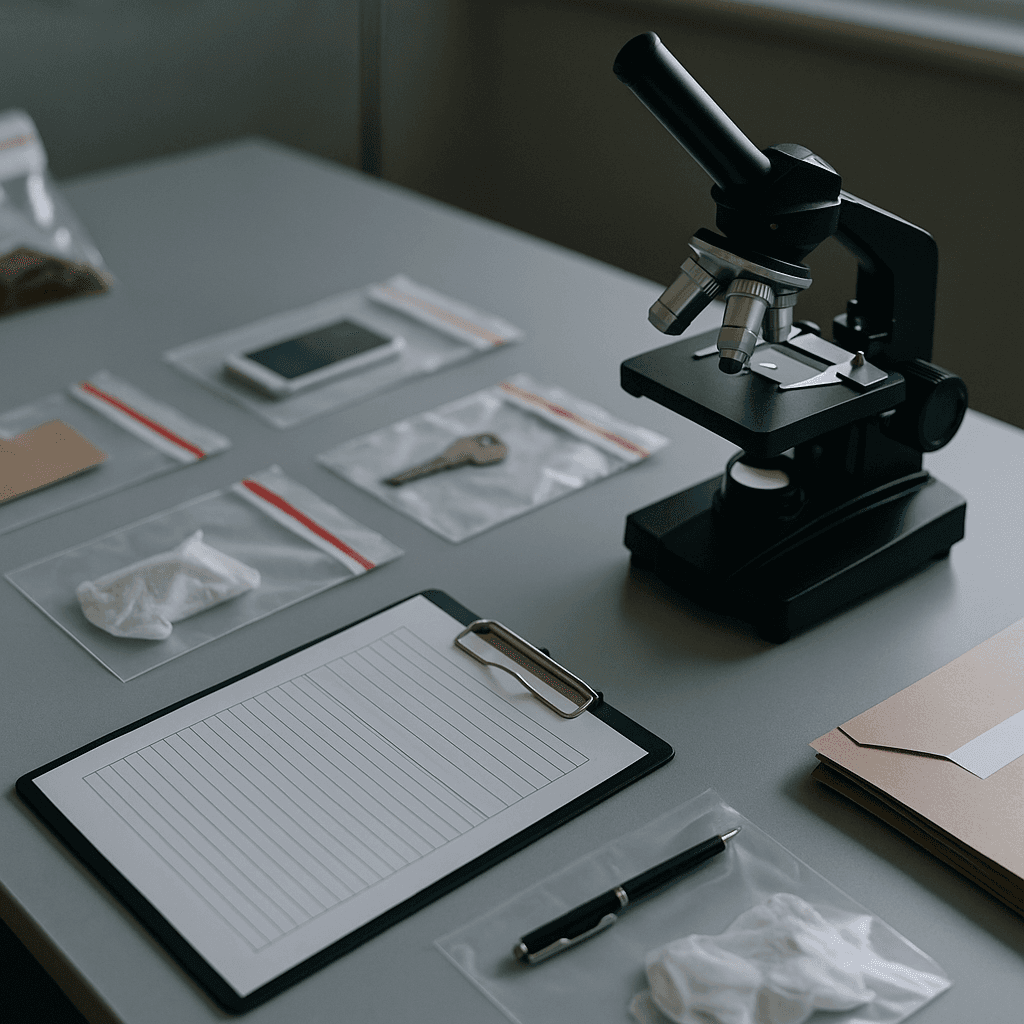
The Dangers of Handling a Personal Injury Case Without Legal Help

Understanding What's at Stake
After an accident, it's natural to want to resolve things quickly. Medical bills begin piling up, your work may be disrupted, and insurance adjusters often seem eager to "help." Many people believe they can handle their personal injury claim on their own—especially if the situation seems straightforward. But personal injury law is complex, and even minor missteps can lead to significant financial loss.
Without professional guidance, you may underestimate your claim's value, miss critical deadlines, or make statements that insurers later use against you. The legal process is designed to protect both sides, and insurance companies have experienced professionals working to limit payouts. Without an equally skilled advocate on your side, you're at a clear disadvantage. That's why consulting a personal injury lawyer early in the process is often the difference between fair compensation and a costly mistake.
The Complexity of Legal Procedures
One of the biggest challenges in managing a personal injury claim alone is understanding the procedural requirements involved. Filing a lawsuit or negotiating a settlement isn't as simple as submitting forms and waiting for a response. There are specific rules for filing, serving, and presenting evidence that must be followed precisely.
For example, once a claim reaches the litigation stage, both parties enter a phase known as discovery, where evidence and information are exchanged. This process can be lengthy and highly technical, requiring detailed requests for documents, depositions, and written interrogatories. Missing a filing deadline or failing to respond properly can jeopardize your entire case. Lawyers spend years mastering these procedures to ensure no opportunities are lost and no rights are waived.
Without guidance, it's easy to overlook how crucial discovery is in shaping the strength of your claim. A skilled attorney knows how to navigate this process effectively, ensuring your side presents a complete and convincing case. The significance of this phase is reflected in what happens during discovery in a personal injury lawsuit, where preparation and accuracy directly impact your results.
The Role of Medical Documentation
Another major pitfall for self-represented individuals is mishandling medical evidence. Insurance adjusters and courts rely on medical documentation to evaluate injury severity, treatment needs, and long-term impact. Unfortunately, without legal experience, many victims fail to understand which records are essential—or how to present them in a persuasive way.
Properly compiled medical documentation shows not only the physical injuries sustained but also their connection to the accident. It demonstrates causation, ongoing treatment requirements, and the cost of recovery. Gaps in treatment or incomplete records can give insurers room to argue that your injuries weren't as serious as claimed.
Attorneys know how to gather and organize this evidence to tell a complete story of your recovery and suffering. They coordinate with healthcare providers, request detailed reports, and ensure your injuries are clearly linked to the event that caused them. This meticulous process is vital, as explained in the importance of medical documentation in your claim, where accurate medical records often determine the success of a case.
How Insurers Exploit Unrepresented Claimants
Insurance companies are businesses first and foremost, and their primary goal is to minimize payouts. When a victim handles a claim without legal help, insurers may take advantage of that inexperience. They might offer quick settlements that seem generous but actually cover only a fraction of long-term costs such as future medical care or lost wages.
An attorney recognizes these tactics and understands how to evaluate a claim's true worth. They negotiate from a position of strength, supported by evidence, documentation, and a deep understanding of the law. Without such expertise, victims often accept settlements that don't come close to meeting their needs—effectively leaving money on the table.
Knowing your rights and what your case is worth is essential, and that understanding starts at your initial meeting with an attorney. It's during that first consultation that expectations are set, evidence is reviewed, and a strategy begins to form—key aspects of the early process explained in what to expect during your first meeting with a personal injury attorney.
Misunderstanding the Financial Side of Representation
Many people hesitate to hire an attorney because they believe they can't afford one. However, most personal injury lawyers work on a contingency fee basis, which means clients pay nothing upfront. The attorney only receives payment if the case is successful, taking a percentage of the final settlement or verdict.
This structure not only makes legal help accessible but also aligns the attorney's goals with the client's. Both parties benefit from maximizing the recovery amount. Additionally, most firms advance the costs of experts, investigators, and medical evaluations, sparing clients from out-of-pocket expenses during an already difficult time.
By misunderstanding how contingency fees work, many victims miss out on quality legal representation that could significantly improve their outcomes. This system is designed to benefit clients by reducing financial risk and ensuring everyone has access to justice, a concept further explored in how contingency fees work – and why they benefit clients.
Losing Objectivity During Negotiations
Personal injury cases are deeply personal—after all, they involve your pain, financial security, and future. Representing yourself can make it difficult to remain objective during negotiations. Emotions may cloud your judgment, leading to decisions driven by frustration or urgency rather than strategy.
Attorneys, however, bring a professional, measured perspective. They evaluate offers based on facts and long-term consequences, not immediate relief. This balanced approach ensures that settlements reflect the true impact of the injury, not just short-term costs. It also prevents missteps like making emotional statements or revealing unnecessary details that insurers can later use against you.
Having a lawyer also helps ensure steady communication throughout the process. If you ever feel ignored or uncertain about your case's direction, it may be a sign that your current representation isn't the right fit. Clients deserve transparency and diligence—something to consider carefully, as explored in when should you switch to a different injury lawyer?, which emphasizes the importance of trust and proactive advocacy in every case.
The Risk of Underestimating the Legal Process
Perhaps the biggest danger of handling your case alone is underestimating its complexity. Personal injury claims require more than just recounting what happened; they demand a comprehensive understanding of legal standards, procedural rules, and evidence presentation. From filing deadlines and liability laws to settlement negotiations and trial preparation, each step involves critical decisions that can either strengthen or weaken your case.
An attorney ensures your claim follows every procedural requirement and that you're protected from costly mistakes. They also anticipate potential defenses the other side might raise and prepare counterarguments to keep your case on solid ground.
Protecting Your Rights From Start to Finish
The consequences of mishandling a personal injury claim can last long after the case closes. Accepting a low settlement, missing a filing deadline, or failing to prove damages can leave you without the resources you need to recover fully. Legal representation doesn't just increase your chances of success—it protects your future.
A skilled attorney ensures your claim is supported by evidence, documented medical proof, and a strong legal strategy from start to finish. With professional guidance, you can focus on healing while your lawyer manages the complexities of the case. The peace of mind that comes from knowing your rights are in capable hands is invaluable—and far outweighs the perceived savings of handling a claim on your own.
Blog Posts:

The Role of Expert Witnesses in Injury Litigation
Why Expert Witnesses Matter in Personal Injury Cases In personal injury litigation, facts alone are often not enough. While evidence like medical records, photographs, and witness statements paint part of the picture, juries and insurance companies frequently need context and explanation to understand the full scope of an injury and its impact. This is where expert witnesses play a pivotal role. Expert witnesses are professionals—often doctors, engineers, economists, or accident reconstruction specialists—who provide testimony based on their specialized knowledge. Their objective is not to advocate for one side but to clarify complex issues that require professional interpretation. In many cases, their opinions help bridge the gap between evidence and understanding, making them critical to achieving fair compensation.

How Insurance Companies Evaluate Injury Claims
How the Evaluation Process Really Works When you file a personal injury claim, the insurance company begins a process that is anything but simple. Behind every offer or denial, there's a calculated evaluation designed to protect their bottom line. Insurers use data-driven methods, past claim outcomes, and internal guidelines to assess how much—if anything—they believe your case is worth. The goal of the insurance adjuster is straightforward: to settle your claim for as little as possible while closing the file quickly. They'll review your medical records, accident details, and even statements you've made to determine liability and damages. The more organized and detailed your claim presentation, the harder it is for them to undervalue it.

When Should You Switch to a Different Injury Lawyer?
Knowing When It's Time for a Change Choosing the right attorney after an accident is one of the most important decisions you'll make in your recovery journey. However, not every lawyer-client relationship is a perfect fit. Sometimes, despite your best efforts, you may realize that your current representation isn't meeting your expectations. Whether it's poor communication, lack of progress, or a sense that your case isn't being handled effectively, recognizing when to switch attorneys can make all the difference in the outcome of your claim. Switching to a new personal injury lawyer doesn't mean starting over from scratch—it means taking control of your case and ensuring it receives the attention and effort it deserves. Understanding what to expect from your legal representation can help you identify the warning signs that it might be time for a change.

How Contingency Fees Work – and Why They Benefit Clients
Understanding Contingency Fees in Personal Injury Cases For many accident victims, the idea of hiring an attorney can seem intimidating—especially when they imagine expensive upfront costs or hourly rates. But in personal injury law, most attorneys work on a contingency fee basis, a structure designed to make legal representation accessible regardless of a client's financial situation. Under a contingency fee agreement, you don't pay your attorney unless your case is successful. Their payment is a percentage of the settlement or verdict you receive, meaning they only get paid when you do. This system aligns the attorney's interests with yours: both parties are motivated to achieve the best possible outcome.
Get an agent on the line in seconds
Responsive
Legal Assistance
Our personal injury attorneys advocate for the funds necessary to cover bills, secure medical treatment, recoup lost wages, and provide compensation for your pain and suffering.
Are you facing unfair treatment from the insurance company?
Do you know the value of your case?
Is the insurance company asserting that the accident is your responsibility?

We'll get back to you ASAP.
Get Your Free Consultation
You Pay Nothing Unless We Recover Compensation For You
